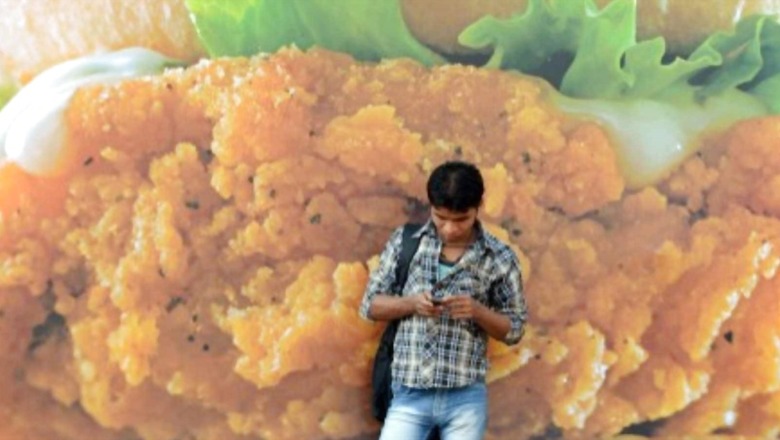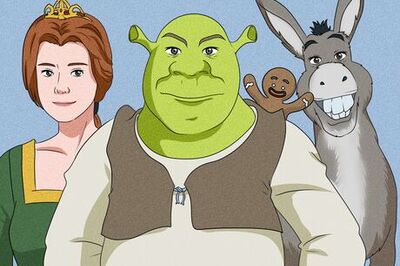
views
A government rule prohibiting brands from advertising “junk food” targeting children was a favourable measure for close to 92 per cent people, as per a survey conducted among parents. The report also highlighted how 50 per cent of the respondents felt that their children will demand or consume less packaged food if they did not come across advertisements selling them.
Existing guidelines in India on ads targeting children
The Central Consumer Protection Authority (CCPA) on June 9 issued a set of guidelines, ‘Prevention of misleading advertisements and endorsements for misleading advertisements, 2022’. It stated that an advertisement addressing or targeting or using children shall not condone, encourage, inspire or unreasonably emulate behaviour that could be dangerous for children. These guidelines also prohibit advertisers from exaggerating features of goods, products or services in a manner so as to mislead children into having “unrealistic expectations”. They also state that an advertisement for junk foods, including chips, carbonated beverages and other such snacks and drinks shall not be advertised during a programme meant for children or on a channel meant exclusively for children.
Some brands or companies have taken up the mantle to promote “responsible” advertising, agreeing with the view that children should not be part of their marketing campaigns. Earlier this year, Hindustan Unilever Limited (HUL), the country’s single largest advertiser, has decided to stop marketing and advertising its entire range of foods and beverages to children under the age of 16 years from 2023.
The action comes amid increased scrutiny on how food and beverage companies are marketing packaged products unhealthy for young consumers. Such a move by HUL has prompted many parents to discuss if packaged food manufacturers should include children at all as part of their marketing or advertising campaigns.
What was the survey?
Community social media platform LocalCircles conducted a survey to learn from parents if advertisements of packaged foods targeting children were leading to increased consumption of unhealthy or junk food by their kids. The survey asked consumers at large if the government should come up with a policy that prohibits manufacturers or brands of packaged foods from including children under the age of 16 in their advertising campaign. The survey received over 24,000 responses from consumers in 304 districts of India.
Questions asked
If your children/grandchildren (under the age of 16) did not come across packaged food advertisements targeting children, would they demand and consume less amounts of unhealthy packaged food?
A majority, 56 per cent respondents said ‘Yes, absolutely’, and only 12 per cent said ‘no, they will consume the same’, while 18 per cent said ‘maybe’ and 14 per cent declared they did not have an opinion. On an aggregate basis, 56 per cent parents said if their children did not come across packaged food advertisements targeting children, they would demand or consume less unhealthy packaged food. This question in the survey received 12,569 responses.
Some global packaged food companies are starting to take an approach to not target children under the age of 16 via advertising. Should the government also make rules where packaged food companies in India are not permitted to target children under 16?
In response, a majority of 81% consumers said ‘yes, this must be done’ and another 11% said ‘yes, this must be done but for children 12 and under’. Only 4% said ‘no, this must not be done as a rule and let packaged food companies do it voluntarily’ while 4% could not say.
On an aggregate basis, 92% respondents are in favour of the government bringing a rule that prohibits brands from targeting children via advertisements of packaged foods. This question in the survey received 12,408 responses.
Child obesity very real issue for India
Experts have noted a significant rise in the consumption of packaged foods, ranging from biscuits to soft drinks and wafers to chocolates, among children. These food habits have adverse effects on their health as packaged items contain ingredients with a high amount of sugar, salt and unhealthy fat.
In fact, child specialists indicated that those children who have a habit of eating packaged foods develop obesity at an early age and, in many cases, attention deficiency hyperactive disorder (ADHD). The World Obesity Federation has predicted that over 27 million children in India may suffer from obesity by 2030.
Children form a substantial target base for advertisers or brands promoting packaged food items not considered healthy by medical standards, while many of them are also featured in marketing campaigns for ice cream, chocolate, wafers, juice among other such food items.
While advertisements in print, television, digital or social media are an important tool to promote products or services to increase consumer base, in many cases it may be doing more harm than good. This becomes more of a reality when it comes to a vulnerable population such as children, who often put pressure on their parents into making purchases guided by their choice.
Read all the Latest India News here



















Comments
0 comment